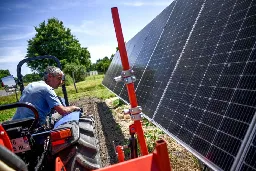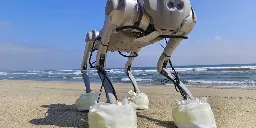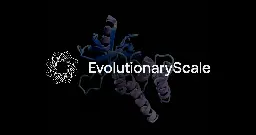I'm fascinated by people's tendencies to anthropomorphize AI & robotics; it's hard to see how this is truly analogous to the human mind and depression.
Yes. I don't think enough people realise the significances of this fact. Unlike us, AI will never peak; it will always relentlessly get better.
One of the difficulties with ending the fossil fuel age is transitioning workers and economic activity. Geothermal energy like Fervo, apart from all its other benefits, might help solve that problem. There's a large cross-over in terms of skills between them and the oil and gas industry. They even sometimes use sites of former fossil fuel extraction for geothermal plants. Now they seem to have successfully demonstrated proof-of-concept it's frustrating things aren't moving faster with this energy source.
Geothermal startup Fervo Energy has announced its largest contract to date, a milestone 15-year deal to sell 320 megawatts of power to Southern California Edison
Superhot underground rocks can supply 24/7 clean power, combating the climate crisis.
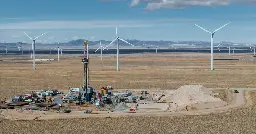
Hyundai Is Putting Tesla To Shame with EVs ... What Happened?
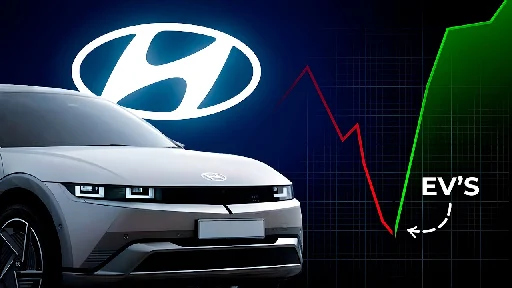
YouTube Video
Click to view this content.
Why the Major Studios Won't Use AI Video Generators Extensively Anytime Soon—And Why That Puts Them in a Bind
Why the Major Studios Won't Use AI Video Generators Extensively Anytime Soon—And Why That Puts Them in a Bind

It makes sense China dominates manufacturing standards; it's the world's biggest manufacturer. It seems an odd thing for the article writer to get worked up over.
Robots-as-a-Service (RaaS) is very similar to human contractors getting paid by the hour.
Robots-as-a-Service (RaaS) agreement integrates Agility’s Humanoid robots with other cobots at SPANX facility
Robots-as-a-Service (RaaS) agreement integrates Agility’s Humanoid robots with other cobots at SPANX facility
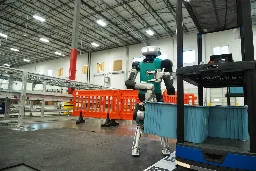
The Shareholder Supremacy - will being ruled by 'shareholder value' run Big Tech into the ground, as its done for many American companies?
I promise you, everything that's happening makes sense. It all feels so chaotic, so utterly, offensively stupid, so disconnected from reality that it's hard to understand how Meta can run a terrible company with decaying services that's also wildly profitable, or how Meta, Microsoft and Google can p...

As this allows for clearer image resolution of smaller planets around the nearest stars, I wonder will it do the same for their atmospheric composition? It seems that will be the key to first detecting alien life elsewhere in the universe. I've a sneaking suspicion that if any life (or its remains) are found on Mars or Europa, it will have been seeded from Earth, and not have arisen independently.
Existing Telescopes Could Directly Observe ‘ExoEarths…’ with a Few Tweaks
One proposal offers a unique method to directly image ExoEarths, or rocky worlds around nearby stars.
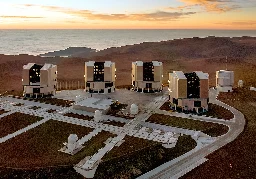
The usual caveats apply to results from testing in mice; it might not be safe in humans, and it's generally years of clinical trials before any human treatment becomes available.
That said, I wonder why humanity doesn't put much more effort into research like this. The birth rate is rapidly diminishing in most Western countries. The 21st century will be, for the first time in human history, the century of the old. Historically that has meant burden, but it needn't be if research like this leads to the results it promises.
In tests in elderly mice, researchers find that TERT, an enzyme that protects telomeres in chromosomes, significantly improves cognition and muscle function and reduces many age-related markers.
In pre-clinical trials, a small molecule effectively regrew neurons, reduced inflammation, and improved memory, speed, coordination, grip strength, and more. The finding could have a profound impact on aging and the diseases that accompany it.
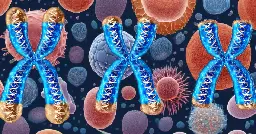
It's important to note that the only people arguing that solar energy and food production are incompatible are involved in disinformation campaigns against renewable energy. I see it being used a lot in talking points to muddy issues.
There are some interesting ideas in this essay, but I'm struck by how much it underestimates the effects of technology, and their implications on the economy.
The Coming Great Conflict; an essay explores if the US is nearing a civil war.
Ray Dalio writes about the five big, interrelated forces that drive how domestic and world orders change

The Next Generation of Robotic Surgeons are Arriving
Robots are getting better in healthcare interventions.
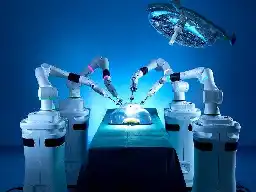
Chip startup Etched says its Sohu chip, designed only to run transformer model AIs, is approx 100 times faster and cheaper than Nvidia's next-gen chips.
Etched, founded by Harvard dropouts, is building an AI chip that can only run one type of model: transformer-based models.

Researchers suggest a technique called 'semantic entropy' may detect hallucinations in LLM AI
Hallucinations (confabulations) in large language model systems can be tackled by measuring uncertainty about the meanings of generated responses rather than the text itself to improve question-answering accuracy.
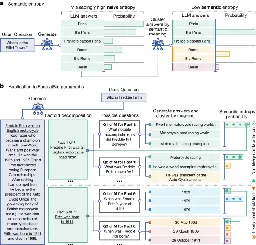
Does it have to drop packages from 3 meters off the ground? I'd rather it landed and gently deposit them. Even so, this won't suit all users - what if you're not in, or in an apartment? Guess it works for people with fenced back gardens. Still, its the future of delivery. These things can get work arounds.
Japanese firm TDK says new material allows solid-state batteries to reach an energy density of 1,000 Wh/L, which is around 100 times more than their existing conventional solid-state batteries.
Japanese firm TDK says new material allows solid-state batteries to reach an energy density of 1,000 Wh/L, which is around 100 times more than their existing conventional solid-state batteries.
Researchers from the University of Cambridge made a groundbreaking discovery: regulatory T cells, a type of white blood cell, form a unified large population that travels throughout the body to locate and mend damaged tissue. This challenges the conventional belief that these cells are divided into various specialized groups confined to specific areas of the body. The implications of this finding are significant for the treatment of numerous diseases, as nearly all illnesses and injuries activate the body's immune response.
It's also interesting they have tested a treatment based on this insight in mice and it has worked. That said, clinical trials can take years before human treatments become available.
A new discovery about immune system function could enable a ‘unified healer army’ of T cells, that could repair injured muscle, make fat cells respond better to insulin, and regrow hair follicles.
A single large population of healer cells, called regulatory T cells, is whizzing around our body - not multiple specialist populations restricted to specific parts of the body as previously thought. These cells shut down inflammation and repair the collateral damage to cells caused after our immun...
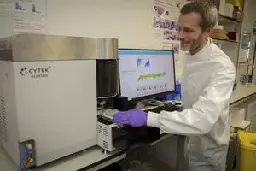
I'm fascinated to see how powerful open-source AI has become. The implications of its growth run counter to so many dystopian narratives for the future that imagine everything owned by corporations and people reduced to serfdom.
As robotics are essentially 3D AI, the implications hold true for this field too. Here we see more evidence of this in action. Stanford University is the 3rd major effort in as many months to announce an open-source humanoid robot. The other two are UBTech/Xiaomi, and the French grouping of HuggingFace/Pollen Robotics.
I think it is overwhelmingly more likely that future robots will be cheap, and widely available than the dystopian 'corporations own everything' scenario. Yet few people factor this in. Robots will be economic engines of production. What does it mean for ideas like UBI if robot ownership is decentralized and widely dispersed?
Stanford University is the latest entrant to develop an open-source humanoid robot. Will future robots be cheap, and widely available, like open-source software today?
Researchers from Stanford University developed a humanoid robot that can learn to do things by imitating its human operator.
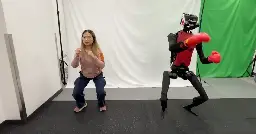
Singapore has a population of 5.6 million people and is only 12 times the size of Manhattan Island. Understandably they have little room for agriculture, particularly the land intensive agriculture that producing animals for food requires. Mostly they import that from Malaysia, which is next door.
I wonder if there are government officials in Singapore encouraging all of this with a view to food security? I often wonder the same with China and their efforts to accelerate renewables. That reduces one of their biggest vulnerabilities, that if there is ever a conflict over Taiwan that they might be militarily blockaded.
OP makes an interesting point here, that though current AI is geared to making things more efficient, it's not necessarily as good at making them better. I agree with the general insight. Though I find his worldview a bit limited, why is it only interesting to talk about this in terms of what businesses do?
Yeah I would definitely think that better LIDAR would be the answer for the problems with dawn and dusk, but the problems with turning might be trickier. It seems there are so many unpredictable variables at play in every situation, that it's hard to model for all of them. But even with that, I would assume eventually with enough modeling that problem will be fixed.
Yeah, it would probably reassure some people. I'm sure lots of AI will get anthropomorphised to make it seem cuddly and approachable.
Mmm, not sure how I feel about this. It just seems to add an unnecessary layer where things might go wrong.
how these robots probably will be used for military purposes as well.
Yes, and not to mention what non-state actors will be able to do with this technology. I'm sure there will be a day in the future when a terrorist attack is carried out by hacked robots.
Despite all that I'm an optimist. I think reducing things like medical expertise to near zero cost will be such a huge boon to humanity, and I suspect most of this robotics power will be relatively decentralized. I don't really believe in dystopian narratives where corporate overlords own the world and the rest of us are reduced to serfs.
In fairness the rethinkx people are doing a better job than most in drawing attention to this issue.
However, I still think the term cowardice is merited, and not just for them.
We constantly hear Silicon Valley types talk about disruption like this, but they’re always afraid to follow through with logical conclusions. I think it's because they know the only two choices are some sort of socialism, or chaos.
It makes them frauds as well as cowards. On the one hand taking billions from private investors for AI; with the other hand creating a world where the stock market probably won’t exist, or will survive only as a shrunken relic.
the marginal cost of labor will rapidly approach zero.....................................Moreover, history shows that although capital (in the form of facilities, machinery, and knowledge) have substituted and thus displaced labor time and time again, labor has nevertheless evolved to remain complementary to that capital.
This illustrates the problem I always have with these discussions. It's even more frustrating in this article, as it clearly states facts, but in the most cowardly of fashions avoids honest implications. How are we supposed to have a free market economy based on capitalism when there is zero value for labor either physical or intellectual?
Every single part of our financial system is based on that; from banking to mortgages to consumer spending to the stock market having valuations to property having valuations. If every single job you can imagine, even the future ones, can be done by machines that are vastly cheaper than humans on the minimum wage, you cannot possibly have an economy that is anything like today's. Yet cowards that they are, the authors of this article lead us all they way to that conclusion, but are too scared to say it.

